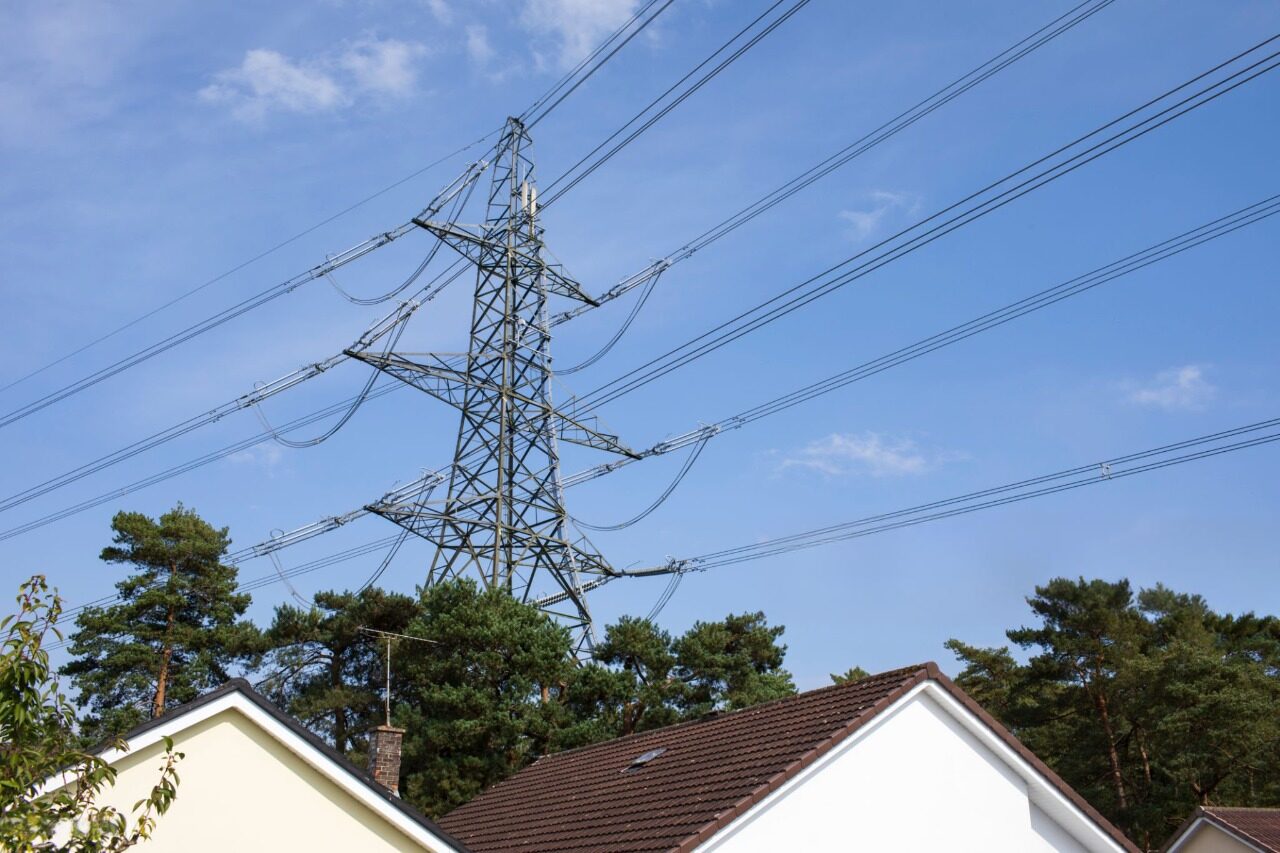Cut Costs, Improve Compliance and Increase Operational Efficiency
As the UK modernizes its energy infrastructure, smart metering systems have become crucial in forecasting, adapting and managing energy consumption. These advanced digital devices provide real-time data, enabling utilities and consumers to monitor energy usage more effectively.
Yet, electric distributors often struggle to gain business benefits from the massive amounts of electricity data these new smart devices collect. Despite investments in new software and applications, alongside legacy information and operational technology systems, interpreting smart metering data to analyze consumer behavior, enhance customer experience, and expand services beyond the curb remains a complex challenge—even for the most advanced utility IT departments.
Why? Because extracting value from these systems requires more than just installing smart meters; it demands strategic integration and data optimization. By seamlessly integrating information technology (IT) and operational technology (OT) applications through tightly coupled connections and well-designed data models, pipelines and strategies, utilities can harness smart metering to enhance operations and deliver exceptional customer service and experiences.
Smart Metering in the UK
Part of a broader initiative to upgrade the national energy infrastructure via the DCC (Data Communications Company), smart metering in the UK aims to replace traditional analog meters with advanced digital smart meters, which are connected and stream data in real time. The UK government has set ambitious targets for the rollout, focusing on installing smart meters in as many households and small businesses as possible.
By the end of 2025, energy suppliers are expected to have installed smart meters in two-thirds of British households. What’s exciting about this modernization effort is that smart meters can provide near real-time usage and network data, enabling consumers and distributors alike to manage energy use more effectively. It enables remote top-ups for prepayment customers, ending manual meter readings and estimated bills.
Managing Massive Datasets
Despite the many benefits of smart metering, network utilities in the UK face several significant challenges in harnessing these modern systems. One major issue is the lack of control over smart meter data. The rollout of smart meters has primarily been driven by retail suppliers, who manage customer relationships and control the data.
This disconnect can hinder network utilities ability to forecast energy demand and manage their networks while ensuring electricity reaches homes and businesses efficiently. Still, they do not have direct access to the metering data that could help them in the big challenge of modernizing the grid.
Another challenge is the siloed nature of IT and OT departments within utilities. Smart metering has often been treated as an IT project, focusing on regulatory compliance rather than financial returns. This means distributors have not been able to extract significant value from smart meter data, as it is not integrated into their operational systems. Unlike suppliers who can see direct financial benefits from smart meters, distributors’ return on investment mainly meets regulatory requirements.
Furthermore, the UK’s deregulated energy market adds complexity. While consumers can switch suppliers easily, network utilities operate in a non-competitive environment, managing fixed geographic areas. This limits their ability to leverage smart meter data for competitive advantage since they are midstream to customers.
Additionally, consumer perception and technology performance issues have impacted the rollout, with some suppliers failing to meet installation targets. Addressing these challenges requires a strategic approach to integrating smart meter data into operational systems and leveraging advanced analytics to unlock its full potential.
Maximize Smart Metering Data Value
To maximize the value of smart metering systems, utilities must deploy a strategic approach that integrates IT and OT systems into a common data environment, optimizes data management and leverages advanced analytics. This requires bridging the gap between traditionally siloed departments to achieve seamless data flow and communication.
By implementing data models tailored to the unique needs of utility clients and the broader UK market, companies can extract meaningful insights to drive efficient business outcomes, minimize unnecessary data collection, reduce waste and lower data costs. Advanced analytics and AI can enhance operational efficiency, improve forecasting and support digital transformation. This modern approach unlocks the full potential of smart meter data, improving operational efficiency and customer service using consumption and usage data gleaned from newly installed smart meters.
Moreover, employing the right strategies and system integrations, including digital transformation techniques, they can eliminate disconnects that impede accurate energy demand forecasting enabling more efficient network management.
Data Strategies and Models
The correct data strategies and models are essential for extracting meaningful insights from smart meter data. This involves identifying the most valuable data sets and reducing unnecessary data collection to lower costs. TRC’s expertise in creating bespoke data models tailored to the UK market helps utilities focus on relevant data, thereby enhancing operational efficiency and reducing the cost of ownership for smart meters.
Once optimized, advanced analytics and AI can be applied to the data to improve forecasting and predictive maintenance. For instance, by integrating smart meter data with OT systems like SCADA, utilities can better predict peak demand periods and manage their infrastructure more effectively. This integration also supports digital transformation by leveraging cloud-based services, which can reduce operational costs and enhance scalability.
Managed Services and AI
TRC offers managed services for smart metering systems, allowing utilities to outsource their management and enabling them to focus on core operations. This includes applying AI and advanced data science to use smart meter data into OT systems without disrupting daily operations. This lets utilities gain deeper insights into consumer behavior and network usage patterns. This results in better services and compliance with regulatory requirements.
Digital Transformation and Cost Reduction
Integrating smart meter data into operational systems supports digital transformation by transitioning from traditional IT systems to cloud-based services. This shift reduces operational costs and the total cost of ownership across the value chain. By realizing the value of smart meters through improved customer service and regulatory compliance, utilities strengthen their relationship with regulators and consumers alike.
Utilities can achieve specific benefits, including:
- Cost Reduction: Lower total cost of ownership through efficient data management.
- Regulatory Compliance: Simplified reporting to demonstrate value to regulators.
- Customer Engagement: Enhanced understanding of consumer behavior.
- Operational Efficiency: Improved network management through data-driven insights.
- Strategic Technology Road Mapping: Ensuring investments align with business objectives using an agnostic approach.
Improve Workflows and Processes Using Smart Metering Data
Properly leveraging data from smart metering systems can significantly enhance utility workflows and processes and ultimately decision-making. Utilities can improve network management, customer service, and energy distribution by integrating smart meter data into their operational systems. Effective use of smart meter data results in better forecasting, predictive maintenance and dynamic pricing strategies, ultimately leading to cost savings and improved regulatory compliance.
Five use cases where smart meter data adds significant value:
- Better Network Management: Utilities can use smart meter data to predict peak demand periods and locations more accurately, allowing them to manage their infrastructure more efficiently. This involves analyzing consumption patterns to optimize energy distribution and reduce the risk of power outages during high-demand times.
- Storm Management: During emergencies like storms, smart meter data provides real-time insights into network performance. Utilities can identify areas affected by outages and prioritize repairs, ensuring faster restoration of services and minimizing downtime for consumers.
- Data Privacy Compliance: Smart meter data handling requires strict compliance with data privacy regulations. Utilities can leverage smart meter data while ensuring that consumer information is securely managed, adhering to GDPR, license and other relevant requirements to maintain trust and avoid legal issues.
- Analytics and AI Integration: Utilities can gain predictive insights into consumer behavior and energy usage patterns by integrating smart meter data with advanced analytics and AI. This helps optimize pricing strategies, customer service, and operational efficiency across the network.
- Beyond the Meter Services: Utilities can extend their offerings beyond traditional energy supply by using smart meter data to provide consumers personalized energy management advice and services. This includes energy audits, smart home solutions and dynamic pricing plans tailored to individual consumption habits.
Leverage TRC’s Experience and Expertise for Smart Metering
TRC can assist utilities in obtaining greater value from smart meter data by bridging the IT/OT gap and creating bespoke data models. TRC’s proven integration capabilities, data models, delivery patterns and practices, as well as software and technology knowledge, span across the utility enterprise. This includes supervisory control and data acquisition (SCADA), energy management systems (EMS), advanced metering systems (AMS), advanced distribution management systems (ADMS) and geographic information systems (GIS), distributed energy management systems (DERMS), control systems and more.
With TRC’s innovative metering solutions and services, clients gain:
- Fully developed business and vendor agnostic technology roadmap3
- Custom data models designed specifically for the UK market
- AI and analytics solutions at the cutting edge of utility innovation
- The full spectrum of managed services for smart meter systems
- Cost reduction strategies that provide immediate value




